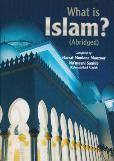What is Islam - eBook
Sunnats and Aadaab of Business and Dealings – Part Two
Written by user23. If an item has a defect, the seller should disclose it to the purchaser. It is not permissible for him to conceal the defect.
Hazrat Abu Hurairah (radhiyallahu ‘anhu) reports that on one occasion, Hazrat Rasulullah (sallallahu ‘alaihi wasallam) passed by a heap of grain. He then inserted his hand in the heap (to inspect the quality of the grain at the bottom) and found that the grain was moist. He asked the owner of the grain, “What is this?” The owner replied, “O Rasulullah (sallallahu ‘alaihi wasallam), the grain became moist due to the rain.” Hazrat Rasulullah (sallallahu ‘alaihi wasallam) replied, “Then why did you not place it (the moist grain) on top of the heap so that the people can see the defective grain (that you are selling to them)?” Hazrat Rasulullah (sallallahu ‘alaihi wasallam) then said, “The one who deceives (people) is not from me.” [1]
Sunnats and Aadaab of Business and Dealings – Part One
Written by user21. A business transaction should be concluded with mutual consent. No party should be forced to carry out the transaction.
يَا أَيُّهَا الَّذِيْنَ آمَنُوْا لَا تَأْكُلُوْا أَمْوَالَكُمْ بَيْنَكُمْ بِالْبَاطِلِ إِلَّا أَنْ تَكُوْنَ تِجَارَةً عَنْ تَرَاضٍ مِّنكُمْ
O you who believe, do not consume one another’s wealth unjustly. However, (only consume one another’s wealth) through (lawful) transactions concluded with mutual consent among yourselves. [1]
The majority of the population of Madinah Munawwarah was made up of the Aws and Khazraj tribes. However, over an extended period of time, a significant number of Jews also settled in Madinah Munawwarah.
The Jews had a number of madrasahs and educational institutes in Khaybar and Madinah. They also had a few fortresses in Khaybar. They were referred to as the Ahl-e-Kitaab (people of the scripture). Compared to the disbelievers (polytheists), they enjoyed educational superiority and distinction in the land of Hijaaz.
In numerous Ahaadith, Hazrat Rasulullah (sallallahu ‘alaihi wasallam) has cautioned the Ummah regarding the evil and destructive consequences of earning and consuming haraam wealth. Some of these Ahaadith are mentioned below:
1. The One who Consumes Haraam will Burn in Jahannum
Hazrat Ka’b bin Ujrah (radhiyallahu ‘anhu) reports that Hazrat Rasulullah (sallallahu ‘alaihi wasallam) said, “The flesh (body) which is nourished with haraam will not enter Jannah, and the fire of Jahannum is more deserving of every flesh (body) that is nourished with haraam.” [1]
Hazrat Abdullah bin Zaid (radhiyallahu ‘anhu) mentions, “The next morning (after seeing the dream in which the angel taught me the words of the azaan), I presented myself before Rasulullah (sallallahu ‘alaihi wasallam) and related the dream to him. On hearing the dream, Rasulullah (sallallahu ‘alaihi wasallam) said:
إن هذه لرؤيا حق إن شاء اللّٰه تعالى
“Surely this dream is a true dream, Insha Allah Ta‘ala.”
The assembly of Rasulullah (sallallahu ‘alaihi wasallam) with the Sahaabah (radhiyallahu ‘anhum) had terminated without them arriving at any decision in regard to which method should be adopted to inform the people of the time to gather in the musjid for the congregational salaah.
Nevertheless, Hazrat Abdullah bin Zaid bin Abdi Rabbihi (radhiyallahu ‘anhu) was greatly affected by this concern of Rasulullah (sallallahu ‘alaihi wasallam).
From the very beginning of the prophethood of Rasulullah (sallallahu ‘alaihi wasallam), two daily salaah were fardh – the fajr salaah and the asr salaah. Thereafter, on the Night of Mi’raaj, the remaining salaahs of the five daily salaah were made fardh.
All the salaahs, with the exception of maghrib, consisted of just two rakaats. After the hijrah, the two rakaats remained as they were for those traveling, while a further two rakaats were added in the zuhr, asr and esha salaahs for those not travelling.
1. Being Saved from the Difficulties of the Day of Qiyaamah
Hazrat Abu Qataadah (radhiyallahu ‘anhu) reports that Hazrat Rasulullah (sallallahu ‘alaihi wasallam) said, “The one who wishes for Allah Ta‘ala to save him from difficulties on the Day of Qiyaamah should grant respite to his debtor who is unable to pay or he should waive his debt.” [1]
1. Earning Halaal is an Obligation of Deen
Hazrat Abdullah bin Mas’ood (radhiyallahu ‘anhu) reports that Hazrat Rasulullah (sallallahu ‘alaihi wasallam) said, “To seek a halaal livelihood is an obligation which is necessary after fulfilling all the faraaidh of Deen (salaah, fasting, zakaat, etc.).” [1]
The Bond of Brotherhood Between the Muhaajireen and Ansaar – Part Three
Written by user2It is reported that whenever a beggar came to Hazrat Aa’ishah (radhiyallahu ‘anha) and made dua for her, as is the habit of beggars (when begging from someone), then she would also make dua for the beggar, and thereafter, she would give him some charity. Someone asked her, “O Umm-ul-Mu’mineen! Why is it that you give the beggar charity, and you also make dua for him just as he made dua for you?”
She replied, “If I do not make dua for him, and I only give him charity, then his kindness over me will be superior to my kindness over him, as dua is far superior to charity. That is why I repay his dua with my dua, so that my charity remains pure and will not be in exchange of anything.”







